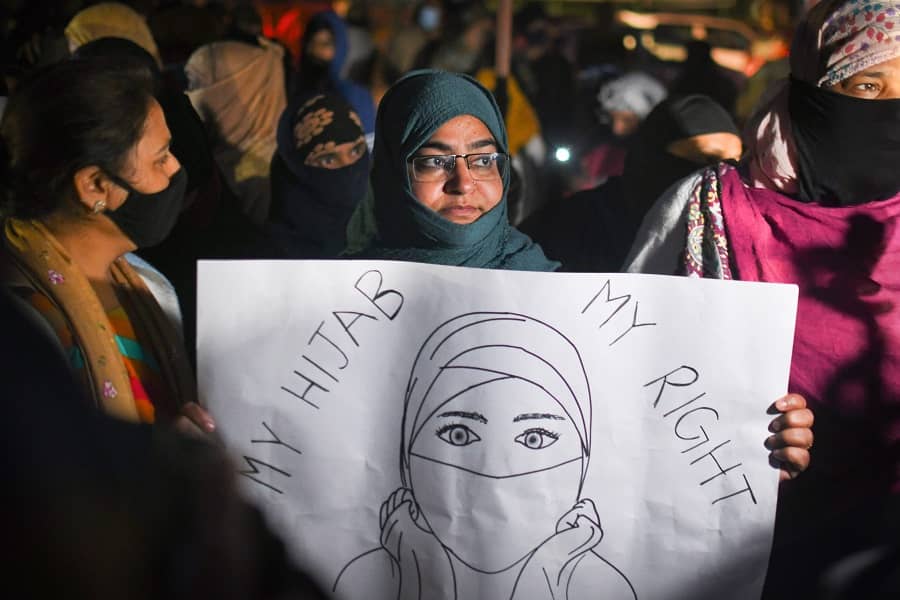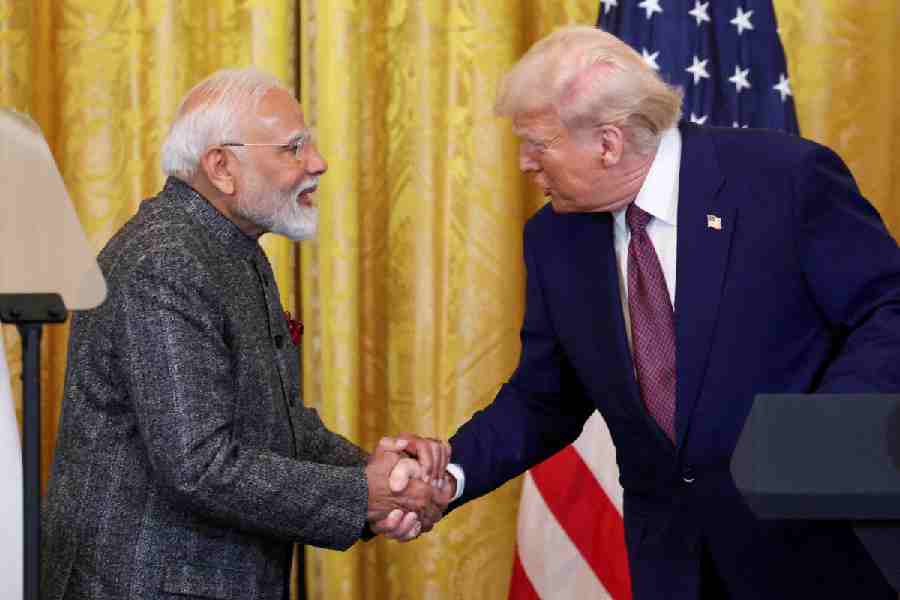The Karnataka government on Friday contended before the Karnataka High Court that the hijab is not an essential religious practice of Islam and preventing its use did not violate Article 25 of the Indian Constitution, which guarantees religious freedom.
The state's Advocate General Prabhuling Navadgi told the full bench of the High Court comprising Justice Awasthi, Justice J M Khazi and Justice Krishna M Dixit that the practice of wearing hijab should also pass the test of constitutional morality as interpreted in various Supreme Court judgments, including the Sabrimala case.
"We have taken a stand that wearing Hijab is not an essential religious part of Islam," Navadgi told the HC bench.
AG Navadgi also rejected the charge of the girls, who challenged the Karnataka government's order on February 5 which restricted students from wearing hijab or saffron scarves saying that it violated Article 25 of the Constitution. Article 25 gives freedom of conscience and free profession, practice and propagation of religion to the citizens of India.
"If somebody wishes to exercise the right to freedom of religion, it has to be seen if this exercise affects public order, health and morality," Navadgi contended.
To buttress his point, he said during the COVID-19 pandemic all the religious places were shut and the purpose for keeping the places closed was public health. In terms of Hijab, it has to be tested in terms of morality, health and public order.
The government order also does not violate 19(1)(A), Navadgi argued. Article 19(1)(a) of the Constitution guarantees to all its citizens the right to freedom of speech and expression.
The Advocate General also contended that the February 5 order of the state government was in accordance with the law and there was nothing to object.
In view of the hijab-versus-saffron scarves row, the bench had passed an interim order earlier restraining students from wearing them on the campus till the final order was passed.
According to the AG, the practice of hijab should pass the test of constitutional morality and individual dignity as expounded by the Supreme Court in the Sabrimala and Shayara Bano cases.
Navadgi told the court that the uniform was in place in Udupi government pre-university college for girls since 2018. However, the difficulty began in December last year when some students approached the principal and insisted that they should be allowed to attend classes with hijab.
Accordingly, the parents were called and told that the uniform norm was there since 1985 which the students need to follow but the girls did not agree and decided to protest.
The AG also stated that when the government learnt about the incident, it said it will constitute a high-level committee with a request not to escalate the problem further. However, till then the issue had spread to other compelling government to pass an order on February 5 restricting the use of any cloth that could disturb peace, harmony and, law and order.
Navadgi told the court that the order was innocuous in nature which did not affect the petitioners' rights but said the students should wear uniform prescribed by the College Development Committee, which has got autonomy by the government.
Referring to the government order, he said the uniform should be in accordance with unity and equality.
The AG underlined that the government's conscious stand is that it did not want to intervene in religious matters and that was the reason that it did not use the word 'hijab' in its order. He also said the petitioners calling the innocuous order communal was wrong.
Responding to Prof Ravi Varma Kumar's argument that the College Development Committee under an MLA, who is a politician, was illegal as it has extra-statutory authority, Navadgi said none of the colleges have ever challenged before the court against the CDCs because it is of a representative character.
On January 1, six girl students of a college in Udupi attended a press conference held by Campus Front of India (CFI) in the coastal town protesting against the college authorities denying them entry into the classroom by wearing Hijab.
This was four days after they requested the principal permission to wear hijabs in classes which was not allowed. Till then, students used to wear hijab to the campus and entered the classroom after removing the scarves, the college principal Rudre Gowda had said.
The institution did not have any rule on hijab-wearing as such and since no one used to wear it to the classroom in the last 35 years. The students who came with the demand had the backing of outside forces, Gowda had said.










